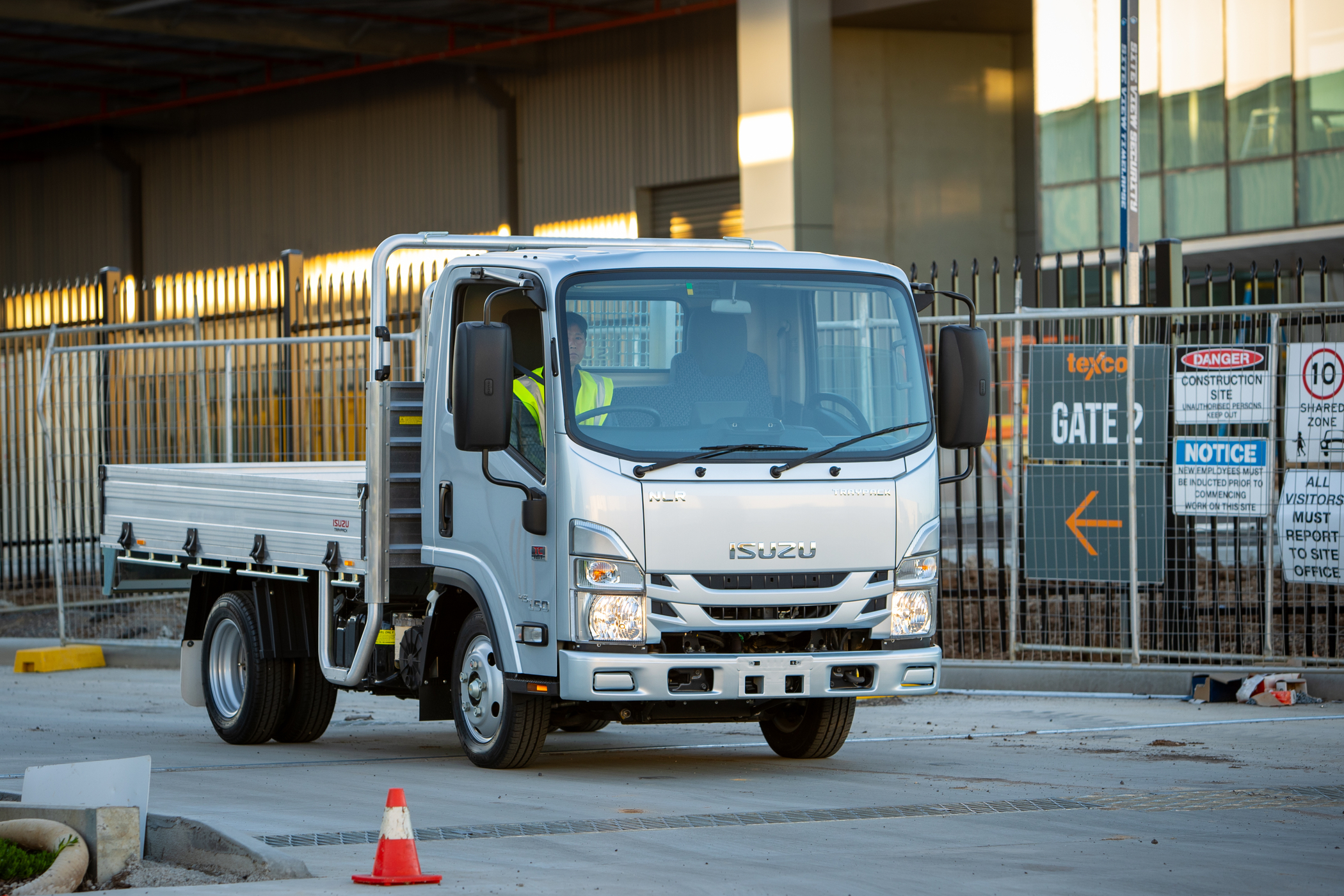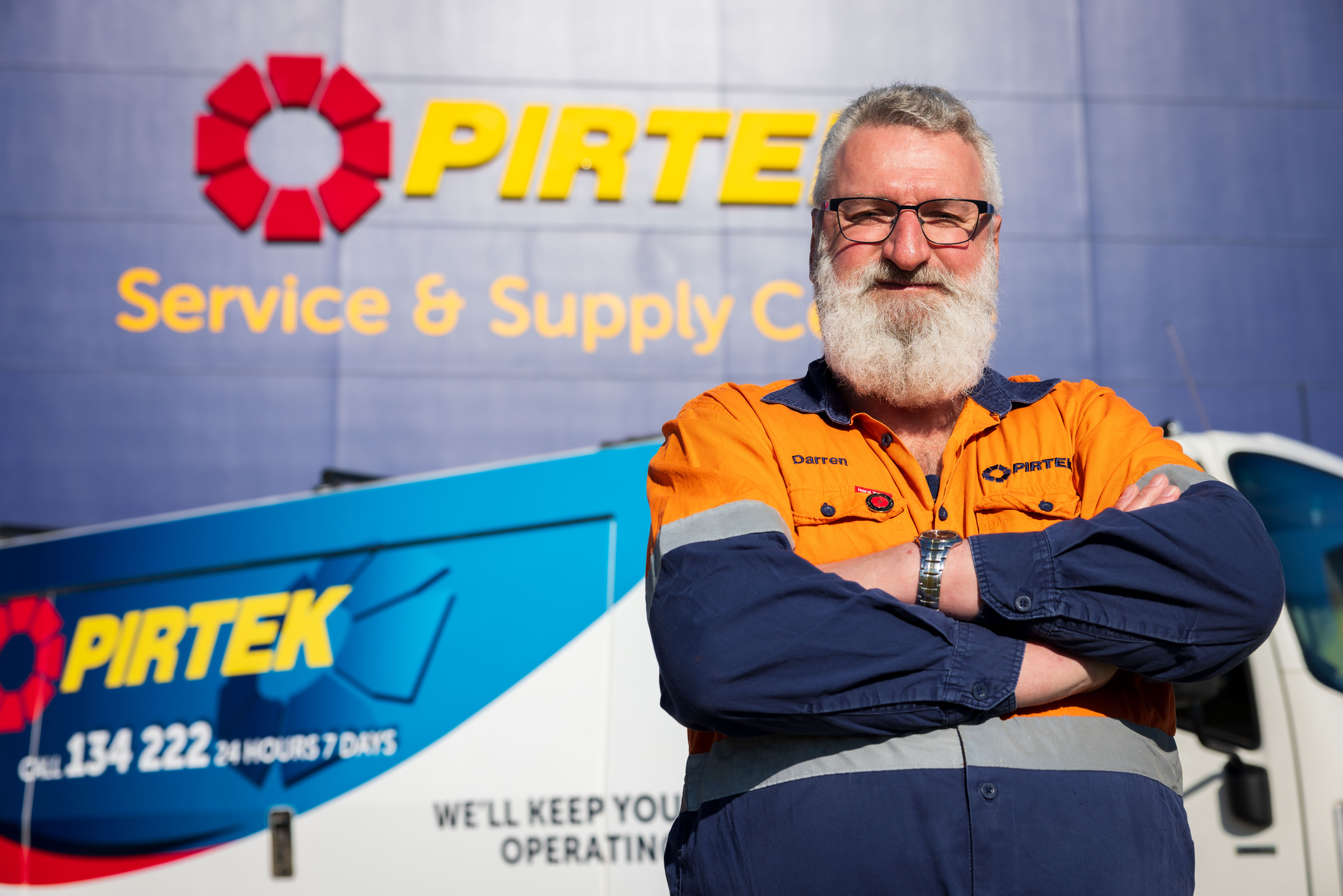Swinging Spanners: Q&A with David Smith, National Training Manager

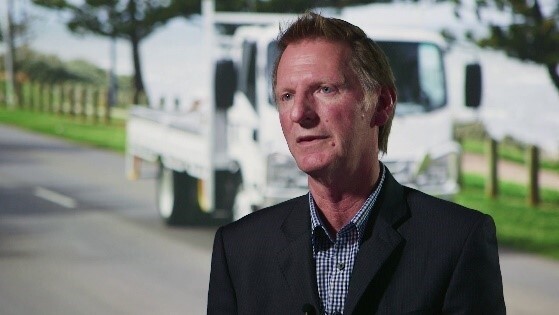 One Isuzu Australia Limited (IAL) executive has stood sentinel over more changes in just his career than most industries ever see.
One Isuzu Australia Limited (IAL) executive has stood sentinel over more changes in just his career than most industries ever see.
IAL National Training Manager David Smith’s department oversees training for Isuzu dealerships nationwide, supporting sales, service, parts and management training. A big task, but one he is more than a match for. David has been in IAL’s training department for 14 years, an eternity in an industry with so many moving parts. Hi David, across a career like yours, I would have to assume you’ve seen a lot of changes, can you tell us a bit about how you started and what has changed in the meantime?
My role hasn’t actually changed that much, just the deliverables. My department is still training everyone, and that’s its own challenge. The content, however, has changed dramatically.
If we go back 14 years to when I started, that was when technology really first started coming into Isuzu trucks with automated manual transmissions, ABS and things like that. I came from a car background where ABS (anti-lock braking systems) and electronics were the norm, whereas in trucks that had only just started to come in.
Isuzu initially outsourced a lot of the electronics to a specialised external company. I worked for that company and was assigned to the Isuzus.
It was a natural crossover to join IAL, and I started as a technical developer, writing technical training courses. I got on really well with my predecessor who retired in 2008. I put my hand up for the job and said, "Yeah, I'll have that one. Thanks." There is a public perception of the role of a technician that you'd be under engines all day, covered in oil and grease. Can you give us an idea of what the role would more closely resemble now?
Yeah, it depends on what you're looking at because there's still a fair degree of mechanical stuff that you always have to do as a technician - brakes and suspensions and everything that comes with that.
We’re seeing a big increase in the role of the diagnostician. The general mechanical side of things remains fundamentally much the same as it's always been. For a diagnostician it’s not just the electronics that you need to know about, you also have to know how the system works. That’s the hardest part. When something is wrong but it’s not immediately obvious what that is, you need to be able to work out the cause.
Of course, not everyone's a diagnostician because not every job needs electronic diagnostics or system failures analysis. There's still a fair amount of work that'll be just general servicing or repairs.  In reference to the changing work of a technician, do you find that the changes trickle in, or are there bigger sweeping changes from time to time that require quite a lot of time and effort to master?
In reference to the changing work of a technician, do you find that the changes trickle in, or are there bigger sweeping changes from time to time that require quite a lot of time and effort to master?
There was a big change in 2007-2008 with the introduction of ADR 80/02. That's when Isuzu updated every model and when we introduced Euro IV compliant engines. (ADR 80/02 is the name of Australian Design Rule that put a limit on the emission of pollutants from new heavy vehicles). That was the major change in my lifetime of working on the trucks. That was really the switch to strict emission levels and a big increase in the role of electronics in the vehicles.
We were all on the huge learning curve getting our heads around how these systems worked. We were often finding that when you did have a problem, and you eventually got to the bottom of the problem, it could be one issue disguised as another. For example, a sensor might say an airflow valve is bad, but when you trace it back, the problem could have started in a totally different place. That’s why the diagnosticians need that in-depth knowledge, they need to understand what can cause knock-on effects and what those effects can look like. Has the changing technology made it easier to train people or now that there's more to know than ever, has it actually become a more difficult job?
Changes were already coming in but COVID certainly pushed everything along faster. Those changes have made training easier certainly, it’s much easier to disseminate the information, to get it to more people in a shorter space of time, which is great. But the actual technology of the trucks being worked on is getting so much more complex, that’s what makes it hard on a technician.
When I started out as a mechanic technician, you had to know the basics, how an engine worked, transmission, brakes etc. Now you’ve got electronics on top of it, engine control systems, transmission control systems, ABS brakes, fuel injection in petrol cars or common rail diesels, and on and on. They just weren't a thing back in my early days. And it’s not just that they need to know the electronics, they need to understand the components within the electronics and how the system actually operates. Life as a technician is much harder than it was in my era. 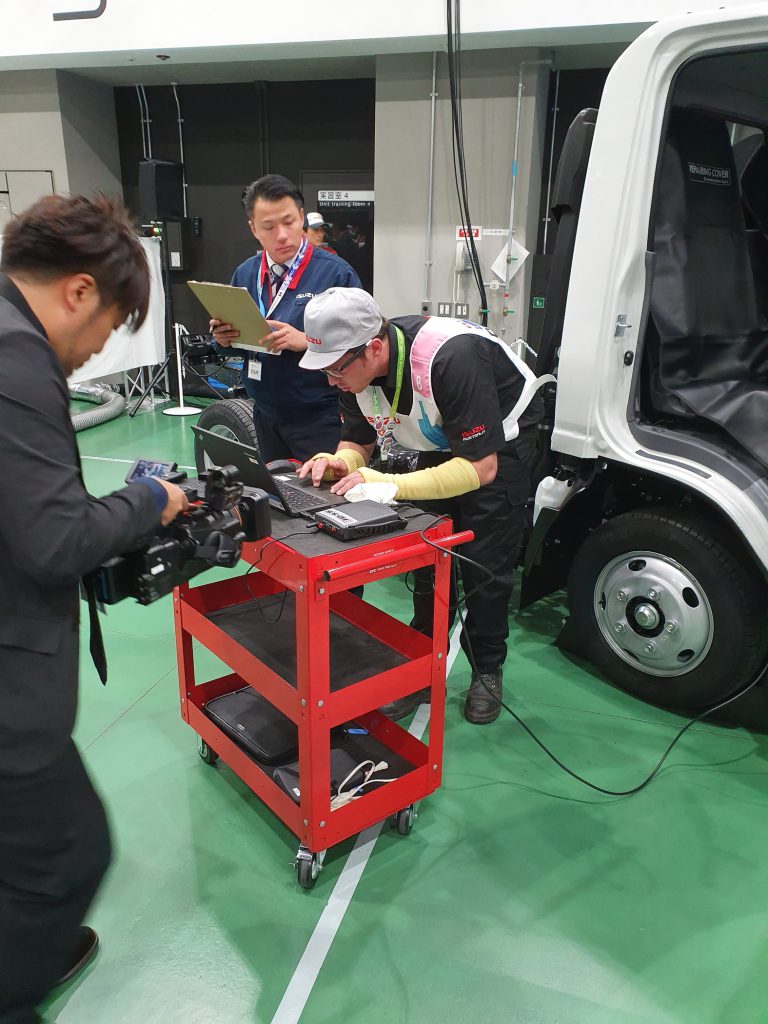 Would you say that a career as a technician is worth the increased difficulty? Oh absolutely! If you begin a career in the automotive field being a technician, it certainly doesn’t mean you’ll be swinging spanners your whole working life, there’s so many opportunities that can arise. I was a motor mechanic technician to start off with myself. Our national service manager, who is now Isuzu Australia’s head of after sales, was a motor mechanic, as was our national service technical manager, and our zone service managers.
Would you say that a career as a technician is worth the increased difficulty? Oh absolutely! If you begin a career in the automotive field being a technician, it certainly doesn’t mean you’ll be swinging spanners your whole working life, there’s so many opportunities that can arise. I was a motor mechanic technician to start off with myself. Our national service manager, who is now Isuzu Australia’s head of after sales, was a motor mechanic, as was our national service technical manager, and our zone service managers.  Even within Isuzu Australia, there's a lot of former mechanics and technicians. In a dealership, you can start out as a mechanic and become a workshop foreman, workshop controller, service advisor, or a service manager. A lot of service managers started out as technicians. Even some of the dealer principals over the years have been technicians or mechanics who worked their way up. That's why it’s a career, not just a job. There are a lot of places to go. Interested in a career in the automotive world? Read about how Brett Stewart went from apprentice mechanic to upper-level management at Isuzu Australia Limited.
Even within Isuzu Australia, there's a lot of former mechanics and technicians. In a dealership, you can start out as a mechanic and become a workshop foreman, workshop controller, service advisor, or a service manager. A lot of service managers started out as technicians. Even some of the dealer principals over the years have been technicians or mechanics who worked their way up. That's why it’s a career, not just a job. There are a lot of places to go. Interested in a career in the automotive world? Read about how Brett Stewart went from apprentice mechanic to upper-level management at Isuzu Australia Limited.

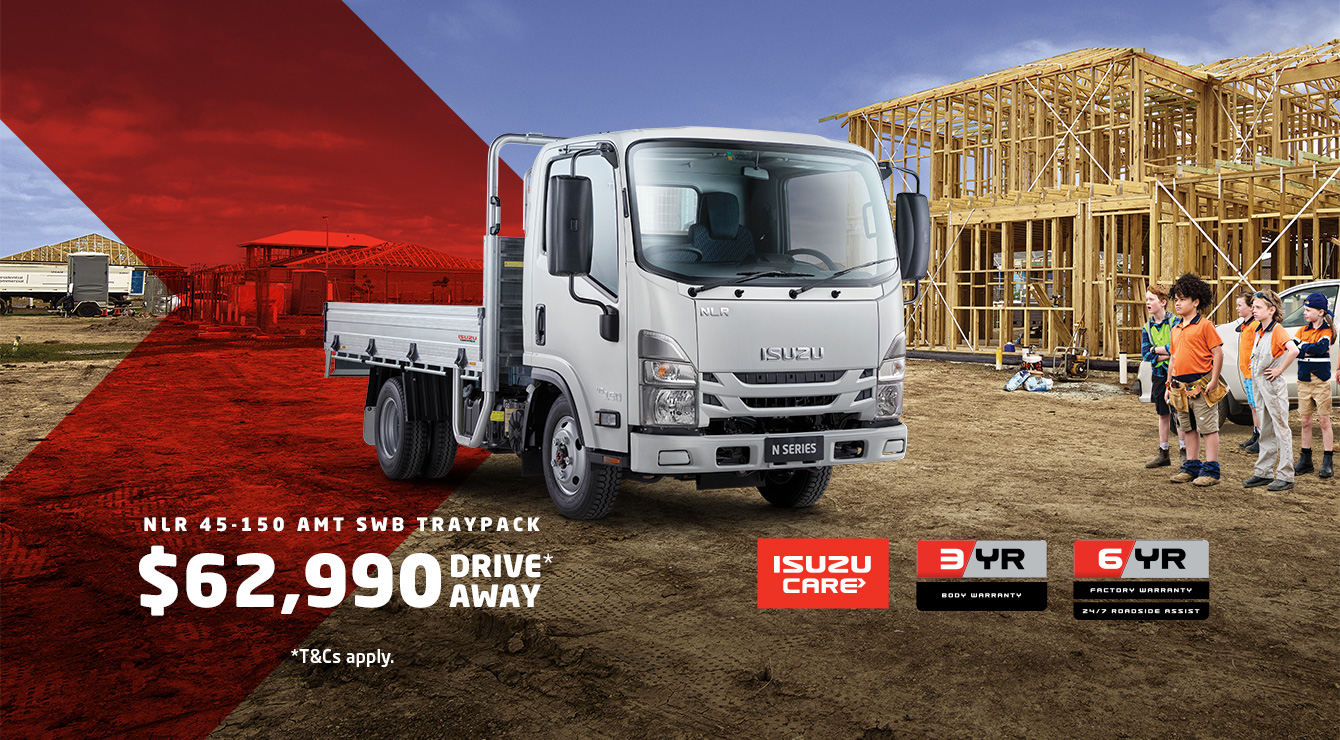
Playtime’s over, get $3,500* to spend on extras.
If you’re ready to get serious about tackling bigger jobs, grab yourself an NLR 45-150 AMT SWB Traypack from the Ready-to-Work range for $62,990 drive away*. And to prove we aren’t playing, buy any NLR Traypack before June 30 and you’ll get $3,500* to spend on genuine accessories or an Essentials service agreement.
Learn more


